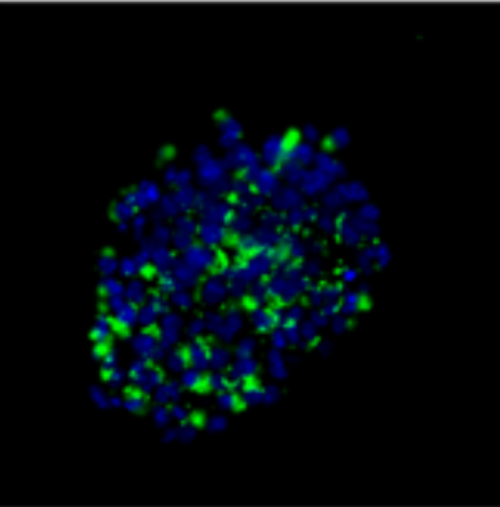Protein Methyltransferase Inhibition Decreases Endocrine Specification Through the Upregulation of Aldh1b1 Expression.
Understanding the mechanisms that promote the specification of pancreas progenitors and regulate their self-renewal and differentiation will help to maintain and expand pancreas progenitor cells derived from human pluripotent stem (hPS) cells. This will improve the efficiency of current differentiation protocols of hPS cells into β-cells and bring such cells closer to clinical applications for the therapy of diabetes. Aldehyde dehydrogenase 1b1 (Aldh1b1) is a mitochondrial enzyme expressed specifically in progenitor cells during mouse pancreas development, and we have shown that its functional inactivation leads to accelerated differentiation and deficient β-cells. In this report, we aimed to identify small molecule inducers of Aldh1b1 expression taking advantage of a mouse embryonic stem (mES) cell Aldh1b1 lacZ reporter line and a pancreas differentiation protocol directing mES cells into pancreatic progenitors. We identified AMI-5, a protein methyltransferase inhibitor, as an Aldh1b1 inducer and showed that it can maintain Aldh1b1 expression in embryonic pancreas explants. This led to a selective reduction in endocrine specification. This effect was due to a downregulation of Ngn3, and it was mediated through Aldh1b1 since the effect was abolished in Aldh1b1 null pancreata. The findings implicated methyltransferase activity in the regulation of endocrine differentiation and showed that methyltransferases can act through specific regulators during pancreas differentiation.

- Stem Cells. 2019 May;37(5):640-651
- 2019
- Cell Biology
- 30681750
- PubMed
Enabled by:
